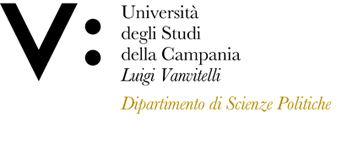Stefano DEPLANO
Insegnamento di DIRITTO CIVILE EUROPEO
Corso di laurea magistrale in RELAZIONI E ORGANIZZAZIONI INTERNAZIONALI
SSD: IUS/01
CFU: 6,00
ORE PER UNITÀ DIDATTICA: 36,00
Periodo di Erogazione: Secondo Semestre
Italiano
| Lingua di insegnamento | ITALIANO |
| Contenuti | Il corso intende analizzare i più rilevanti ed attuali temi del diritto europeo (Diritto dei contratti, diritto delle obbligazioni, diritto della responsabilità civile, diritto delle famiglie e delle successioni) in una prospettiva euro-unitaria. |
| Testi di riferimento | P. Perlingieri - Il diritto civile nella legalità costituzionale secondo il sistema italo-europeo delle fonti, Napoli, 2020, - Vol IV - cap. I e II, pp. 1 - 304 |
| Obiettivi formativi | Conoscenza e capacità di comprensione. Lo studente dovrà dimostrare una conoscenza almeno sufficiente degli argomenti indicati nel programma. (knowledge and understanding). |
| Prerequisiti | E' richiesta una conoscenza approfondita dei contenuti degli esami di "Diritto privato", "Diritto costituzionale" e "Diritto dell'Unione europea". |
| Metodologie didattiche | Lezioni frontali e lezioni "capovolte". Le 36 ore del corso si sviluppano in modo interattivo: gli studenti dovranno studiare, volta per volte, il materiale indicato e venire in classe preparati a discuterlo. |
| Metodi di valutazione | Gli studenti saranno valutati sulla base di (2) prove scritte e (1) prove orali. |
| Altre informazioni | Per partecipare al corso è caldamente consigliato padroneggiare l'uso della lingua inglese (livello C1 del QCER). |
| Programma del corso | A) una Parte generale dedicata ad un approfondimento dello studio delle fonti europee nonché alla circolazione dei modelli giuridici all’interno dell’Unione europea e alle diverse tecniche di integrazione politica, giuridica ed economica tra gli Stati membri. |
English
| Teaching language | Italian |
| Contents | The course aims to analyze the most relevant and current topics of European law (Contract Law, Law of Obligations, Tort Law, Family and Succession Law) from a Euro-Unitarian perspective. |
| Textbook and course materials | P. Perlingieri - Il diritto civile nella legalità costituzionale secondo il sistema italo-europeo delle fonti, Napoli, 2020, - Vol IV - cap. I e II, pp. 1 - 304 |
| Course objectives | Knowledge and understanding skills. The student must demonstrate sufficient knowledge of the topics indicated in the program; must also demonstrate the ability to understand the subject, with regard both to the institutes analyzed both to the principles and rules that govern the current italian law system. The student will also have to prove to know how to develop own and original ideas. |
| Prerequisites | Thorough knowledge of the content of "Private Law," "Constitutional Law," and "European Union Law" exams is required. |
| Teaching methods | Lectures and ‘flipped’ classes. The course’s 36-hours are developed interactively: students will be expected to do all the reading assignments and come to class prepared to discuss them. |
| Evaluation methods | Students will be assessed on the basis of (2) written and (1) oral assessments. |
| Other information | Proficiency in English (C1 CEFR) is strongly recommended for participation in the course. |
| Course Syllabus | A) A general part devoted to an in-depth study of European sources as well as the circulation of legal models within the European Union and the different techniques of political, legal and economic integration between the Member States. |








